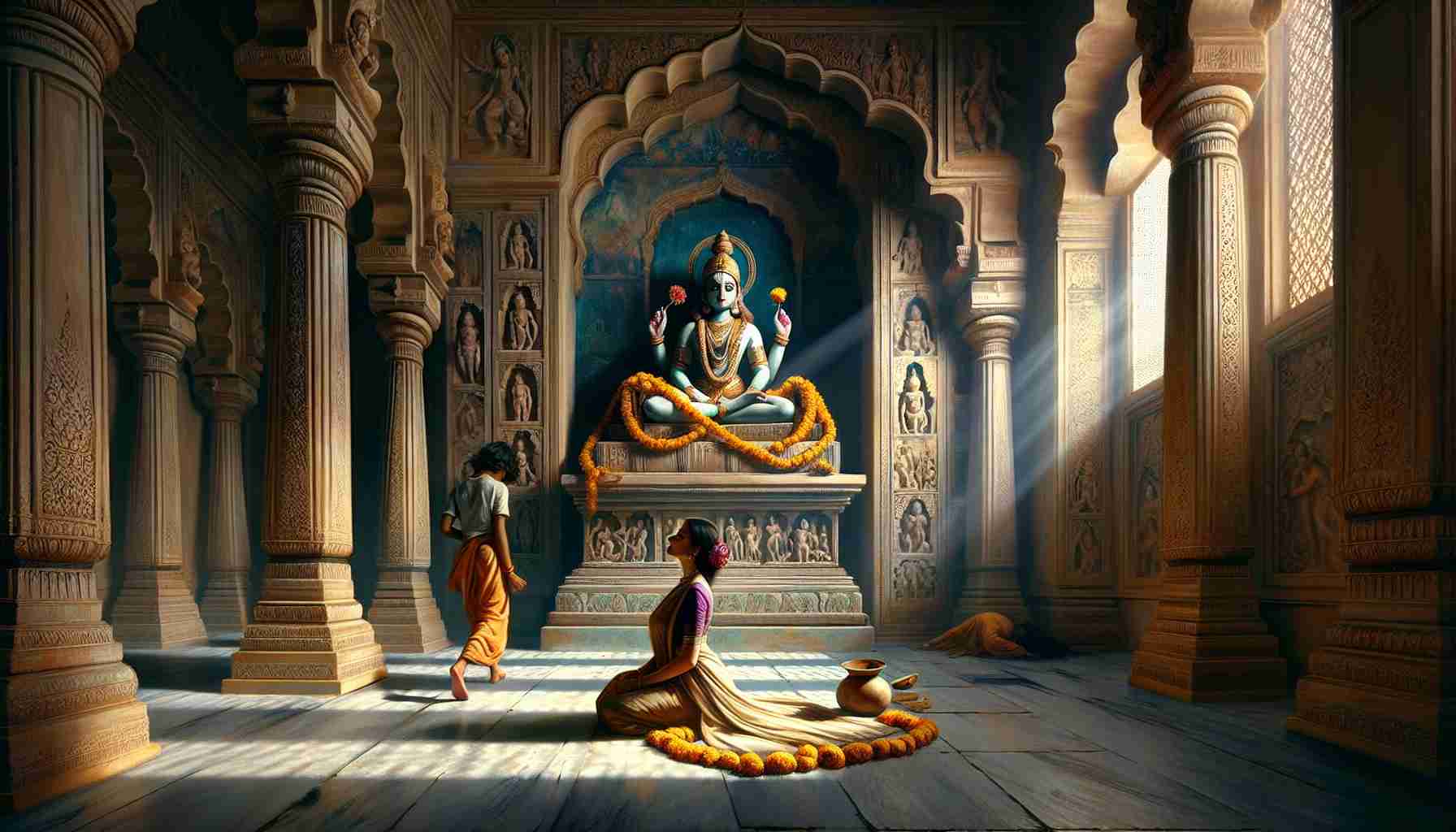

I was thirty-three when my father passed, and the weight of our family’s world settled on my shoulders. My name is Devika, and I come from a long line of Kshatriya — warriors. My father taught me how to ride a horse before I could write my name. Strength was not a choice in our home. It was the expectation.
After his cremation, I took over the ancestral land, the accounts, the temple offerings — everything. Every morning, I rose before the sun and bathed in the Ganga — our sacred river — just as he had. I whispered prayers to Shiva, the destroyer and transformer, asking for endurance. I kept my emotions packed tightly, like the sword my father once wore.
But by the end of the first year, I was exhausted in a way I couldn’t explain. My arms could still lift the grain sacks; my lips could still smile at village elders. But inside, something was cracking. One night, lying on the porch under the neem tree, I whispered what I never dared even to think: “I’m tired of being strong.”
And that’s when I remembered a verse my father used to quote from the Bhagavad Gita: “Sarva-dharmān parityajya mām ekaṁ śaraṇaṁ vraja” — “Abandon all varieties of duty, and just surrender unto Me.” (BG 18.66)
I sat up, repeating the verse over and over. Was it really saying what I thought? That I could stop carrying everything alone? That surrender wasn’t weakness — it was a kind of strength?
The next morning, I didn’t rise before sunrise. I let the puja candles burn down without replacing them. And instead of going to the fields, I walked to the temple and simply sat before the murti of Krishna — the playful form of God, who guided Arjuna through his doubts.
I said nothing. Not even prayers. Just silence.
A little boy came in — maybe eight, maybe nine. He offered a marigold and looked at me. “Are you crying?” he asked, his head tilted.
I nodded.
“It’s okay,” he said. “My Amma cries at the temple too. That’s when Krishna listens most.”
And he walked out, swinging a half-empty bag of jaggery.
I don’t know why those words broke me open. Maybe it was his innocence. Maybe it was because he said it without trying to fix me.
That evening, I offered my tasks to the divine silently. “Take this burden,” I whispered. “I no longer wish to be the hero. You be the strength.”
In the Chandogya Upanishad, it is said: “When speech merges into mind, mind into prana, prana into heat, and heat into the Highest Being — that is peace.”
I had tried to be strong through speech, mind, and action. But peace came only when I stopped.
Surrender, I learned, is not laying down your sword. It is placing it at God’s feet — and trusting that you are not alone in this battle.
And finally, I could breathe.
I was thirty-three when my father passed, and the weight of our family’s world settled on my shoulders. My name is Devika, and I come from a long line of Kshatriya — warriors. My father taught me how to ride a horse before I could write my name. Strength was not a choice in our home. It was the expectation.
After his cremation, I took over the ancestral land, the accounts, the temple offerings — everything. Every morning, I rose before the sun and bathed in the Ganga — our sacred river — just as he had. I whispered prayers to Shiva, the destroyer and transformer, asking for endurance. I kept my emotions packed tightly, like the sword my father once wore.
But by the end of the first year, I was exhausted in a way I couldn’t explain. My arms could still lift the grain sacks; my lips could still smile at village elders. But inside, something was cracking. One night, lying on the porch under the neem tree, I whispered what I never dared even to think: “I’m tired of being strong.”
And that’s when I remembered a verse my father used to quote from the Bhagavad Gita: “Sarva-dharmān parityajya mām ekaṁ śaraṇaṁ vraja” — “Abandon all varieties of duty, and just surrender unto Me.” (BG 18.66)
I sat up, repeating the verse over and over. Was it really saying what I thought? That I could stop carrying everything alone? That surrender wasn’t weakness — it was a kind of strength?
The next morning, I didn’t rise before sunrise. I let the puja candles burn down without replacing them. And instead of going to the fields, I walked to the temple and simply sat before the murti of Krishna — the playful form of God, who guided Arjuna through his doubts.
I said nothing. Not even prayers. Just silence.
A little boy came in — maybe eight, maybe nine. He offered a marigold and looked at me. “Are you crying?” he asked, his head tilted.
I nodded.
“It’s okay,” he said. “My Amma cries at the temple too. That’s when Krishna listens most.”
And he walked out, swinging a half-empty bag of jaggery.
I don’t know why those words broke me open. Maybe it was his innocence. Maybe it was because he said it without trying to fix me.
That evening, I offered my tasks to the divine silently. “Take this burden,” I whispered. “I no longer wish to be the hero. You be the strength.”
In the Chandogya Upanishad, it is said: “When speech merges into mind, mind into prana, prana into heat, and heat into the Highest Being — that is peace.”
I had tried to be strong through speech, mind, and action. But peace came only when I stopped.
Surrender, I learned, is not laying down your sword. It is placing it at God’s feet — and trusting that you are not alone in this battle.
And finally, I could breathe.